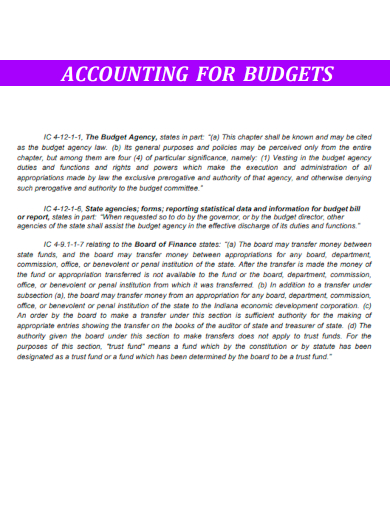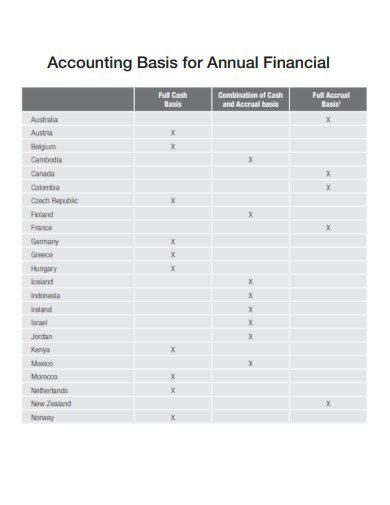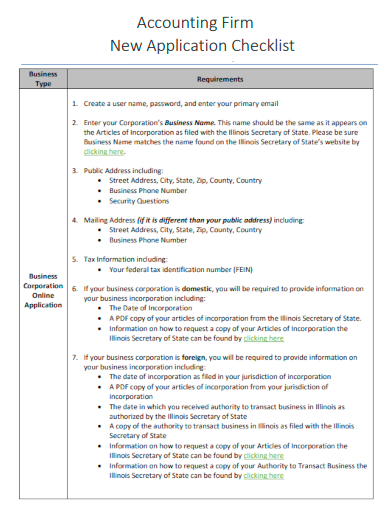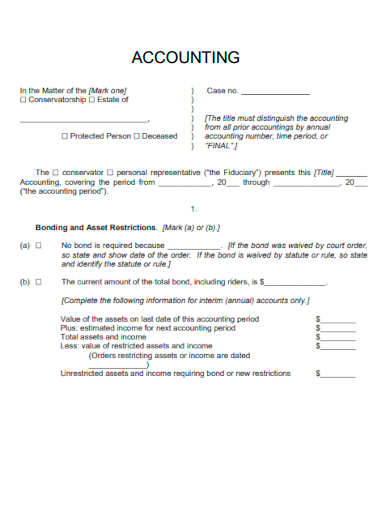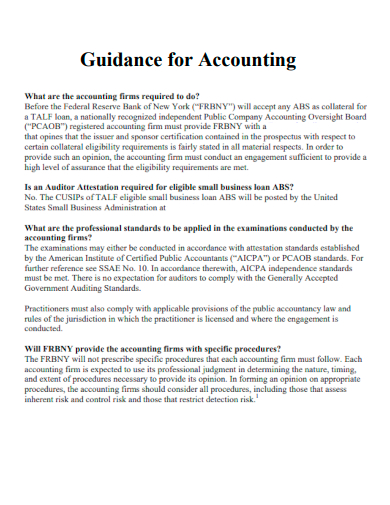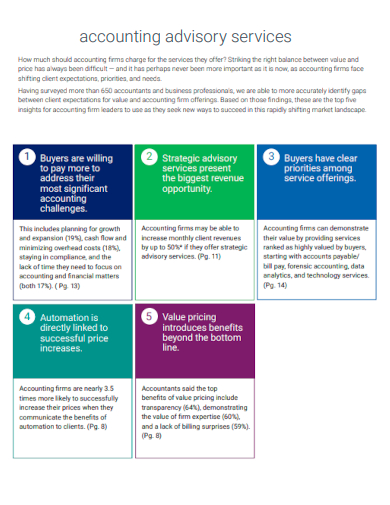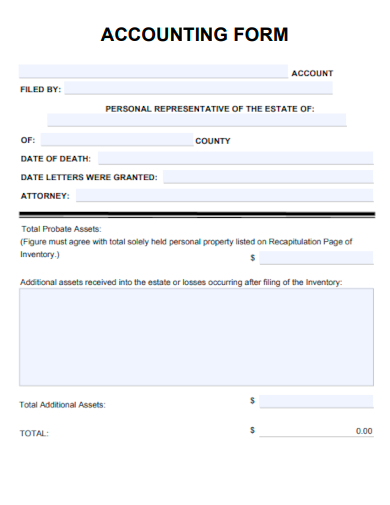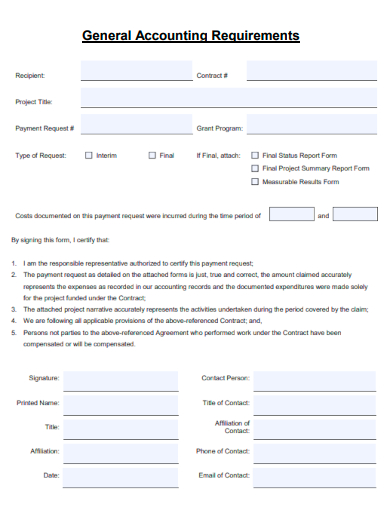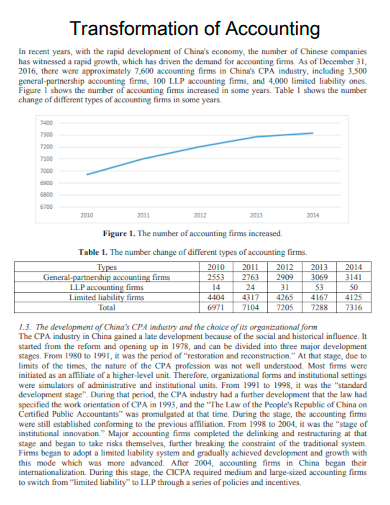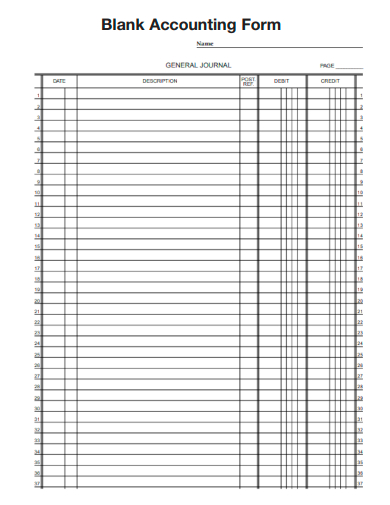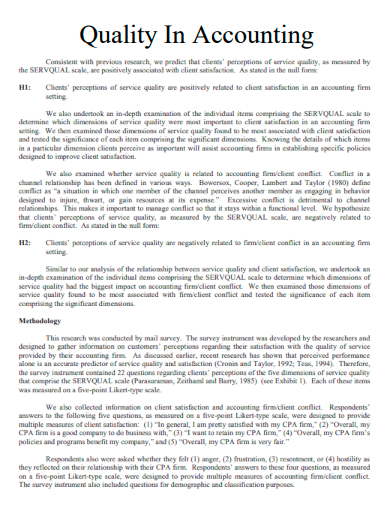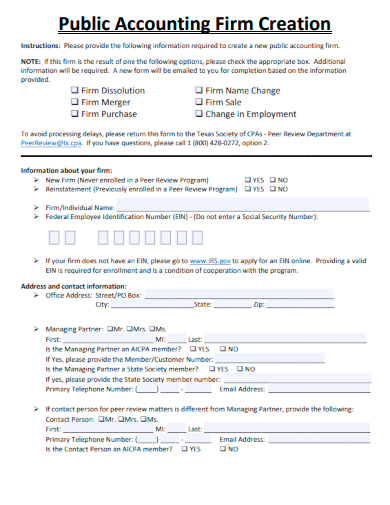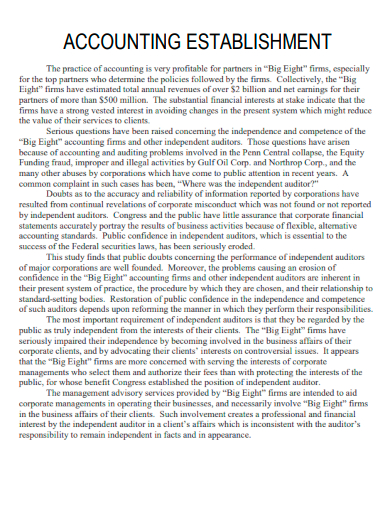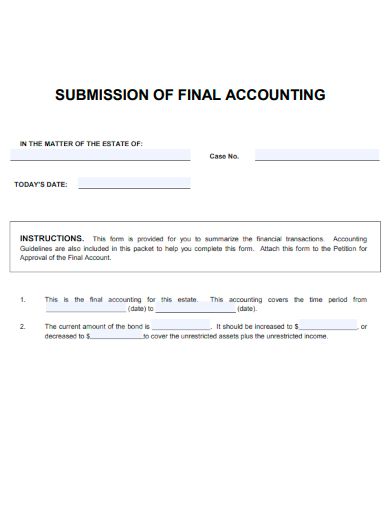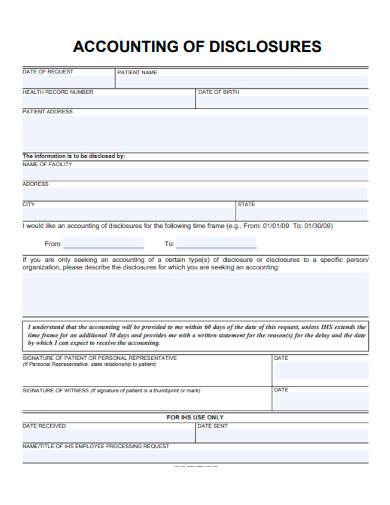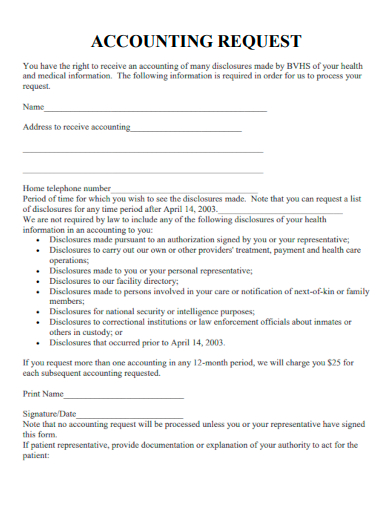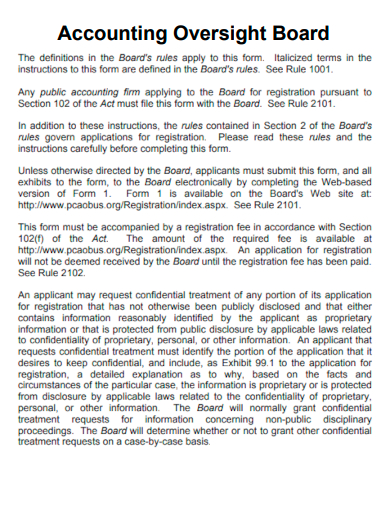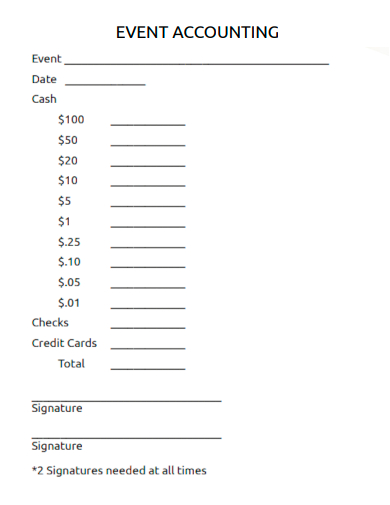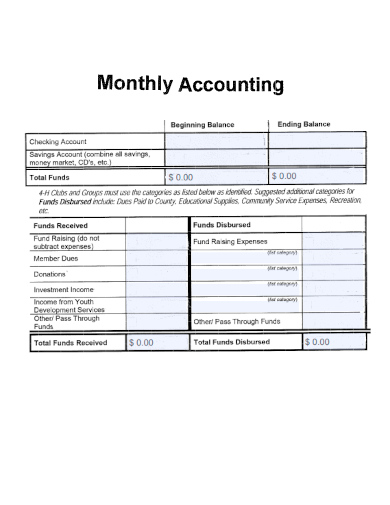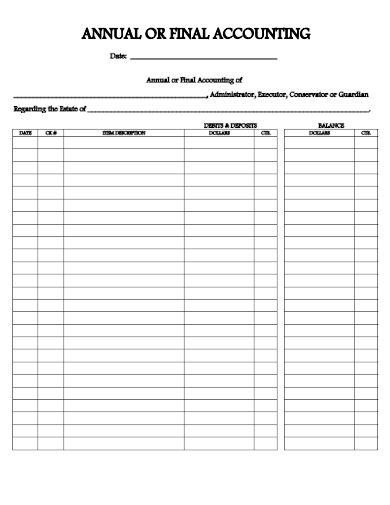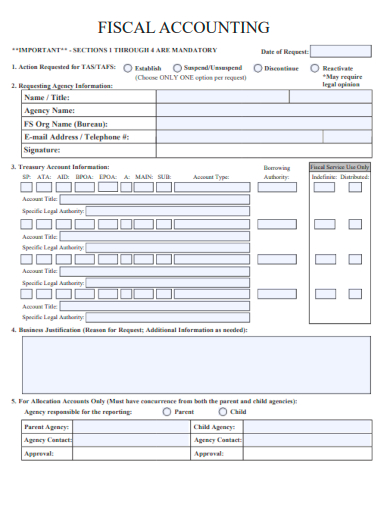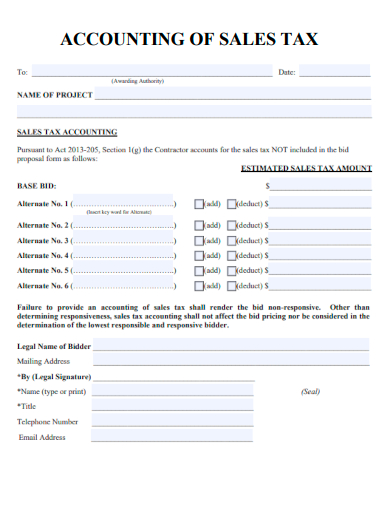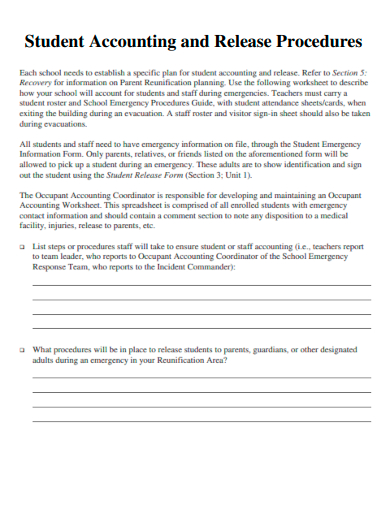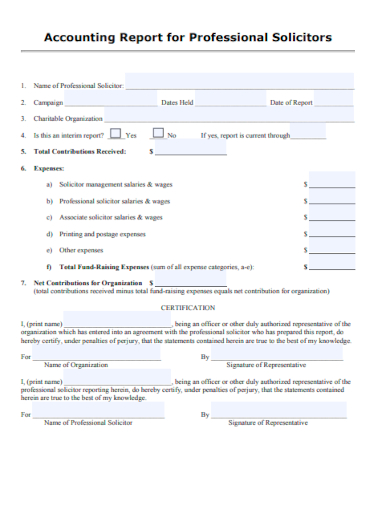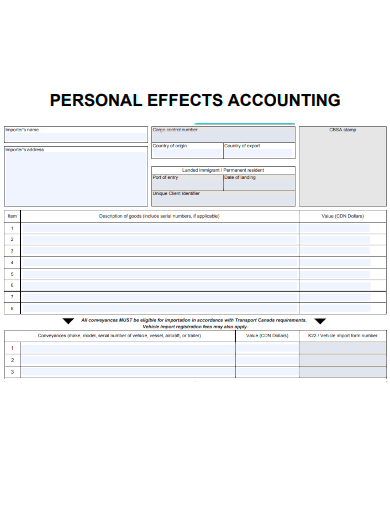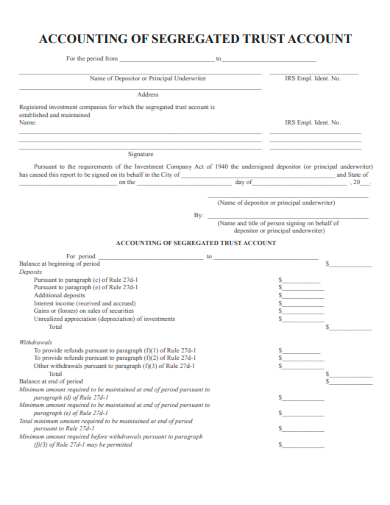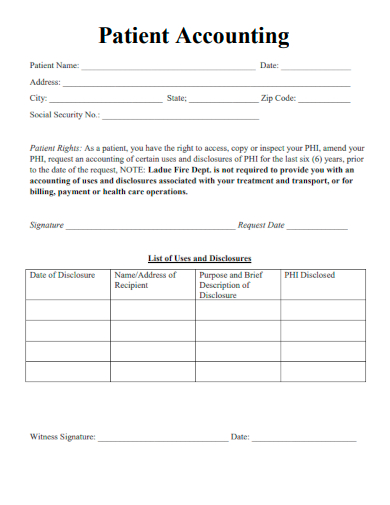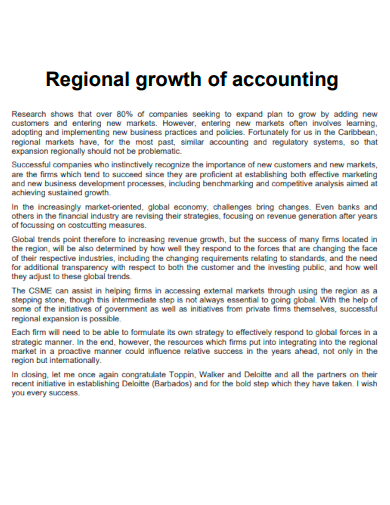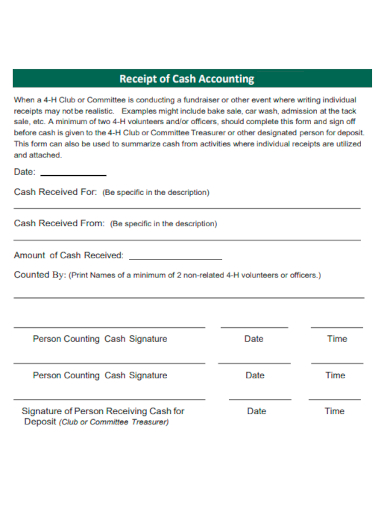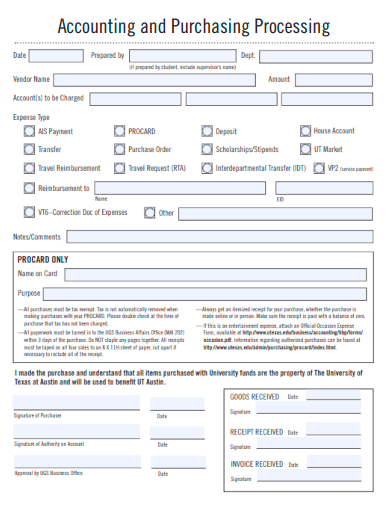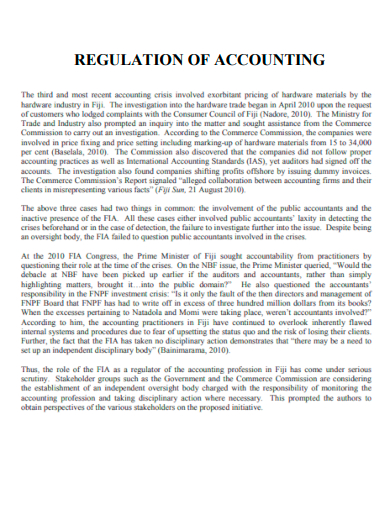Starting and developing a business involves a set of roles and responsibilities that must be fulfilled by groups of team members. Business accounting refers to the methodical process of recording, analyzing, and presenting financial information which can be executed by an individual in a small business or by another team member from a large enterprise. Accounting includes the analyzing and reporting of financial statements to produce a concise summary of a particular financial transaction over an accounting period.
FREE 30+ Accounting Samples
1. Accounting for Budgets
2. Accounting Basis for Annual Financial
3. Accounting Firm New Application Checklist
4. Sample Accounting
5. Guidance for Accounting
6. Accounting Advisory Services
7. Accounting Form
8. General Accounting Requirements
9. Transformation of Accounting
10. Blank Accounting Form
11. Quality in Accounting
12. Public Accounting Firm Creation
13. Accounting Establishment
14. Submission of Final Accounting
15. Accounting of Disclosures
16. Accounting Request
17. Accounting Oversight Board
18. Event Accounting
19. Monthly Accounting
20. Annual or Final Accounting
21. Fiscal Accounting
22. Accounting of Sales Tax
23. Student Accounting and Release Procedures
24. Accounting Report for Professional Solicitors
25. Personal Effects Accounting
26. Accounting of Segregated Trust Account
27. Patient Accounting
28. Regional Growth of Accounting
29. Receipt of Cash Accounting
30. Accounting and Purchasing Processing
31. Regulation of Accounting
What is Accounting?
Accounting is a business process in which the financial information of a certain business or corporation is measured, processed, and shared. It also involves the procedure of classifying, recording and writing the summary of business financial transactions which provides a clear picture of its financial health or status. This information will be used as the basis for the company’s resource management plans, business development plans, and strategic planning for improvement plans.
How to Conduct Accounting
During an accounting process, accountants record the summary of the business transactions through journal entries which will be used in bookkeeping. The book of accounts they prepare is in compliance with the regulation of the auditors and other regulating entities. These records help in determining a company’s financial performance and whether they are earning profits or not then identifying the most effective ways to fix the issues in their finances they will be able to identify.
Step 1: Determine The Types of Your Transactions and Record Them
An accounting process starts with determining the type of transaction and how many of them a company will be having within an accounting cycle. Make sure to record all of these transactions by creating journal entries for every one of them. You can choose between accrual basis accounting and cash accounting to determine when to officially record your transactions.
Step 2: Post in Your General Ledger and Check Balance
Include the record in your general ledger which is a document that contains the breakdown of all accounting activities of an account which enables the monitoring of its financial positions and statuses. Calculate the trial balance to determine unadjusted balances in each of your accounts.
Step 3: Analyze the Account Worksheet
Analyze the worksheet intended for your debits and credit information to ensure that they are balanced. In case of discrepancies, adjustments will be made to these worksheets which is usually needed for revenue and expense to match when accrual accounting is used.
Step 4: Adjust Entries, Generate Financial Statements, and Close the Book
Make necessary adjustments to journal entries, provide financial statements which include income statements, balance sheets, and cash flow statements, then close the books to end an accounting cycle.
FAQs
What are the different accounting types?
The different types of accounting include financial accounting, managerial accounting, cost accounting, and tax accounting.
What are the benefits of doing accounting?
Accounting helps a business’s growth by providing it insights on effective performance, used for funding by communicating with external investors, necessary for owner exit, making payments, collecting payments, and ensuring the company’s compliance with GAAP or IFRS.
What is the importance of accounting?
With accounting, businesses can keep a record of all their transactions, facilitate decision-making for their management, communicate outcomes, and meet legal requirements.
Accounting is a term that refers to the procedure of consolidating a business’s financial information to produce a clear and understandable report for all relevant stakeholders and shareholders. This process aims to document and report all business or financial transactions, performance, and cash flows which enables stakeholders and shareholders to analyze the business’s performance.
Related Posts
FREE 10+ Double Entry Journal Samples and Templates in MS Word | PDF
FREE 5+ Stock Ledger Samples and Templates in MS Excel | PDF
FREE 10 + Revenue Recognition Samples & Templates in PDF | MS Word
FREE 11+ Liability Insurance Application Samples and Templates in MS Word | PDF
FREE 11+ Petty Cash Reconciliation Samples and Templates in MS Excel | PDF
FREE 10+ Reconciliation Statement Form Samples and Templates in MS Word | PDF | MS Excel
FREE 10+ Annuity Disclosure Form Samples & Templates in PDF
FREE 9+ Absorption Costing Samples & Templates in PDF | MS Word
FREE 10+ Prepaid Expenses Samples and Templates in PDF | MS Excel
FREE 7+ Depreciation Worksheet Samples & Templates in PDF | MS Word
FREE 10+ Turnover Ratio Analysis Samples and Templates in PDF
FREE 11+ Cost Volume Profit Analysis Samples & Templates in PDF | MS Word
FREE 10+ Bank Reconciliation Statement Samples and Templates in PDF | MS Word
FREE 9+ Balance Sheet Reconciliation Samples & Templates in PDF | MS Word
FREE 7+ Annuity Review Checklist Samples and Templates in MS Word | PDF

